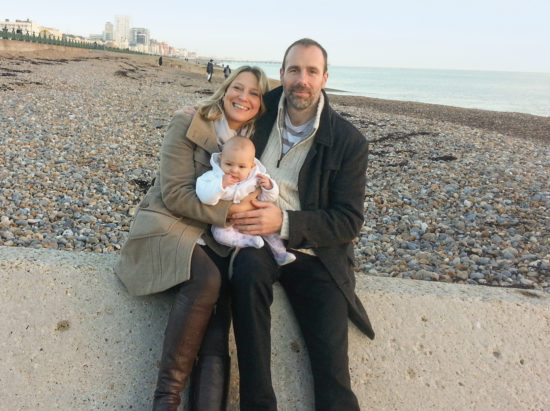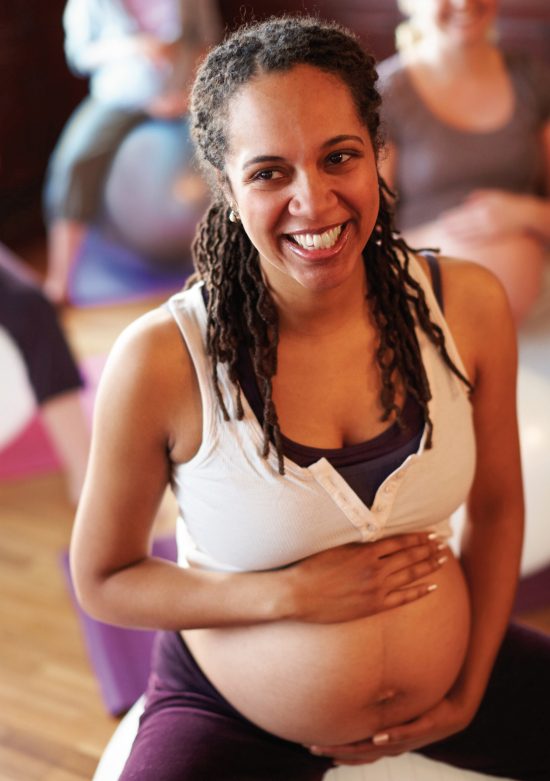As your body grows and changes during pregnancy, you may find you encounter some unexpected symptoms and discomforts. We look at some common conditions and hear from members about their experiences.

Most people know about morning sickness and expect some degree of nausea when they become pregnant. But did you know that there is a whole range of less well-known symptoms of pregnancy and that you may also experience nosebleeds, constipation, itching and heartburn at different times?
Luckily, most conditions are not serious and are, in general, the result of changes taking place in your body to enable your baby to be born safely.
But it’s important to be open with your midwife about how you feel, both physically and emotionally, and ask for advice if anything seems out of the ordinary.
‘While usually not a cause for concern, some common discomforts can be hugely debilitating and difficult to manage if you’re looking after older children or at work and feel unable to ask for breaks or time off,’ says Dot Parry, midwife and NCT antenatal teacher.
Pregnancy isn’t an illness but the symptoms can make you feel ill.
‘I often felt dizzy,’ says Annabel Kristensen, mum to Rosalina, now five months and member of Islington NCT branch. ‘A snack usually sorted me out but there was one day I didn’t make it to work as a secondary school teacher because I thought I might pass out. It was upsetting knowing I was creating more work for my colleagues. But, luckily, they were kind and understanding.’

Sue Massey (pictured), mum to five-month-old Olivia and member of Sutton and Epsom NCT branch, suffered from morning sickness for the first 16 weeks of her pregnancy.
‘I felt nauseous from morning to night,’ she says, ‘and at one point I even went and laid under a desk in an empty office during lunch just so I could get through the afternoon. It was truly horrible especially as I wanted to wait to announce my pregnancy until I’d had the three-month scan’.
It can be hard for women, sums up Michelle Anderson, midwife and editor of Essentially MIDIRS at the Midwives Information & Resource Service (MIDIRS). ‘Pregnancy isn’t an illness but the symptoms can make you feel ill. Imagine how sympathetic people would be if you had a vomiting bug for several weeks!’
‘Understanding the changes in your body and knowing what to expect can help reduce anxiety about symptoms,’ says Michelle.
Hormonal changes are also responsible for things like nosebleeds, while the increased amount of blood to support the developing baby can put a strain on veins, contributing to varicose veins.
For example, it may help to know that an increase in the hormone relaxin during pregnancy – which helps the uterus make room for your growing baby – affects other muscles in your body and makes your joints and back ache and may also affect your pelvic floor.
Raised levels of oestrogen to help increase your blood supply causes breast tenderness or pain, while relaxed tissues and hormones acting in the digestive system are contributing to experiences such as heartburn, nausea and constipation.
Sue says talking to her midwife helped her understand the symptoms and find ways of alleviating them. ‘The midwife explained I had Symphysis Pubis Dysfunction (SPD), which is now known as Pelvic Girdle Pain (PGP), where the pelvic bones move to prepare for birth.
She said they sometimes become out of alignment and cause inflammation and showed me some stretches to do. I also visited an osteopath and a selection of pillows became my constant companions.’
Your midwife will be able to tell you if your condition will affect your choice of birth place.
Your midwife will be able to tell you if your condition will affect your choice of birth place.
‘Mostly minor pregnancy symptoms don’t affect your birth choices,’ says Michelle, ‘although more serious issues such as hyperemesis gravidarum or HG (excessive vomiting), gestational diabetes (high blood sugar levels) and obstetric cholestasis (a liver disorder), could mean you’ll be encouraged to have your baby on a labour ward rather than at a midwife-led unit’.
It is always worth exploring your options though, as Dot explains. ‘PGP has affected choices for some women I have worked with. However, at one birth centre we were creative in trying to find ways for women with limited mobility to increase their choices. This included women having a practice run in the birth pool to prove to themselves – and the midwives – that they’d be able to get out of the water without hurting themselves’.
If you do have a pre-existing condition, talk to your midwife, GP or specialist about accessing support and developing a care plan tailored to your needs.
Pregnancy puts a strain on your body so if you have a pre-existing condition, such as diabetes, heart disease or epilepsy, you may need extra support.
While there is usually no reason why you shouldn’t have a smooth pregnancy and a healthy baby, some health conditions do need careful management to minimise risk to both you and your baby. They could also affect decisions about where you plan to give birth.
‘Many women suffer unpleasant nausea at different times of the day, sometimes with vomiting, but it’s not generally a cause for concern,’ says Michelle. ‘But it can sometimes develop into the much more serious condition HG, often requiring hospitalisation.’
Other discomforts can be a sign of something more serious developing. ‘A degree of swelling is normal, particularly in the ankles,’ says Michelle, ‘as your body retains more fluid during pregnancy, but abnormal swelling, particularly in the face and hands, can be a symptom of pre-eclampsia (a pregnancy disorder characterised by high blood pressure and protein in the urine that can affect both mum and baby).
Similarly, many women experience headaches in pregnancy but if they are accompanied by flashing lights or disturbances in your vision, that too could be a sign of pre-eclampsia.’
Keep your midwives informed so they can monitor changes.
Mild itching, as a result of increased blood supply to the skin, is another common symptom, but severe itching, especially if more pronounced on the palms of hands and soles of feet, can also be a sign of obstetric cholestasis.
Tiredness, again, is to be expected during pregnancy but may also be a symptom of anaemia. ‘The important thing,’ says Michelle, ‘is to keep your midwives informed so they can monitor changes. Make sure you have a phone number you can call between appointments and leave a message if you don’t get a reply. If you are worried, you can also contact your GP.’
Sepsis is a potentially serious illness that can develop in some pregnant women (as well as in women who have recently had a baby) in response to an infection.
The immune system goes into overdrive and the chemicals it releases into the blood to combat infection trigger widespread inflammation.
It can be very serious and develop quickly. If you experience the symptoms below, you should seek medical attention urgently – quick treatment makes all the difference. Sepsis is treated with antibiotics.
Signs and symptoms may include: a high temperature (over 38.3°C), fast breathing or breathlessness, chills and shivering, headache, extreme sleepiness, a fast heart rate and severe abdominal pain.
On top of any physical discomfort you may be experiencing, pregnancy symptoms can make you feel isolated and even as though you have lost control over your body.
Some women find they feel down, which can be difficult to deal with, particularly when other people think you should be happy and excited. This may be compounded by guilt and confusion about not feeling overjoyed.

It is also thought that up to 10% of mums-to-be suffer from antenatal depression, although it is rarely talked about or documented.
Mental wellbeing is just as important to you and your baby as physical health. This, says Dot, is when, antenatal classes and gentle exercise, such as pregnancy yoga, can help.
‘Lots of women are used to generally feeling good about their bodies and pregnancy conditions can affect their body image adversely. Finding a way to bring back that feeling of general wellbeing through talking, gentle exercise and connecting with other women can be hugely beneficial.’
Also remember there is help available if you are struggling to deal with your emotions or suffering from antenatal depression. Make sure you talk to your GP and midwives about how you feel.
‘Talking to your midwife doesn’t cost anything,’ advises Michelle, ‘and you can always ask her for help with relaxation techniques if you feel you would benefit from them. It can also help to remember this phase won’t last forever.’
Annabel says: ‘I reminded myself that my body was doing an incredible thing and tried not to get anxious about discomforts when I had them. My NCT group has a motto “Get Out and Get It Out” – that is get out of the house and talk about your problems – and this definitely helped me.’
Read more about pregnancy on our website.
Join an NCT antenatal course.
Find out about NCT branches and activities in your area.
Help and support: 0300 330 0700